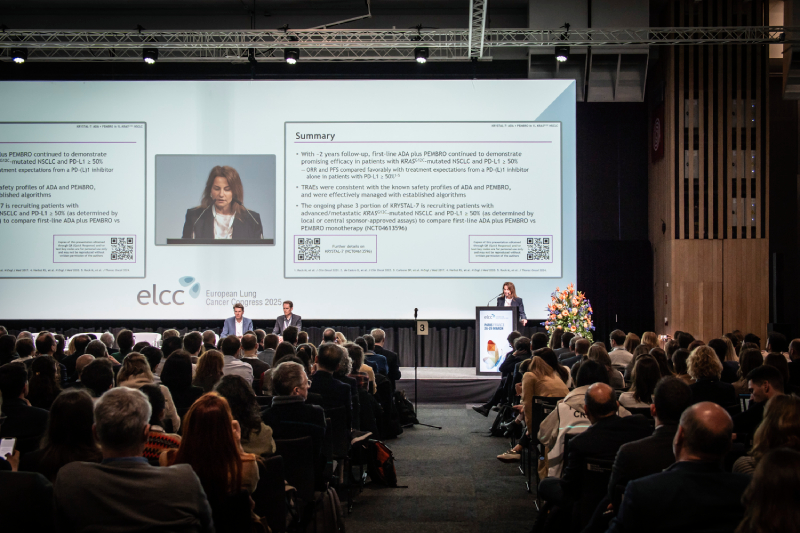
Patients with metastatic non–small cell lung cancer (NSCLC) who have KRAS G12C and G12D mutations “demonstrate distinct clinical characteristics and treatment responses,” according to a recent real-world study.
Adel Shahnam, MD, of the Peter MacCallum Cancer Centre in Melbourne, Australia, and colleagues conducted the study and published their findings in Lung Cancer.
It was important to conduct the retrospective, multi-institution study because KRAS G12D and G12C mutations “have distinct biological traits influencing treatment response,” Dr. Shahnam and colleagues explained.
They used the AURORA database to evaluate real-world demographics, clinical characteristics, and first-line treatment outcomes among patients aged 18 years or older who were diagnosed with metastatic KRAS G12C (n=216) or KRAS G12D (n=82) NSCLC between January 1, 2010, and April 30, 2024.
The study showed there was a higher proportion of patients who had never smoked in the group with KRAS G12D mutations (15%) than in the group with KRAS G12C mutations (1%; P<0.01). The group with KRAS G12D mutations also had a higher proportion of patients who had PD-L1 < 1% (36%) than the group with KRAS G12C mutations (21%; P=0.06).
However, there were no significant differences between the groups in overall survival (OS) (hazard ratio [HR], 1.09; P=0.60) or in real-world progression-free survival (HR, 1.21; P=0.18).
Among patients with KRAS G12C NSCLC, monotherapy with immunotherapy improved OS compared with chemotherapy alone (HR, 0.61; P=0.04), as did chemo-immunotherapy (HR, 0.59; P=0.03). However, among patients with KRAS G12D NSCLC, neither immunotherapy (HR, 0.74; P=0.53) nor chemo-immunotherapy (HR, 0.73; P=0.42) improved OS compared with chemotherapy alone.
“This study provides real-world insights into the clinical characteristics and outcomes of patients with KRAS G12C and KRAS G12D −mutant NSCLC,” Dr. Shahnam and colleagues concluded. “While survival outcomes were comparable between the two mutations, KRAS G12D patients demonstrated a higher prevalence of never-smoking status and differences in treatment efficacy outcomes. These findings emphasize the need for continued development of targeted therapies, particularly for KRAS G12D, to address the unmet needs of this subgroup.”
Reference
Shahnam A, Davis A, Brown LJ, et al. Real-world outcomes of non-small cell lung cancer patients harbouring KRAS G12C and KRAS G12D mutations. Lung Cancer. 2025;201:108421. doi:https://doi.org/10.1016/j.lungcan.2025.108421







 © 2025 Mashup Media, LLC, a Formedics Property. All Rights Reserved.
© 2025 Mashup Media, LLC, a Formedics Property. All Rights Reserved.